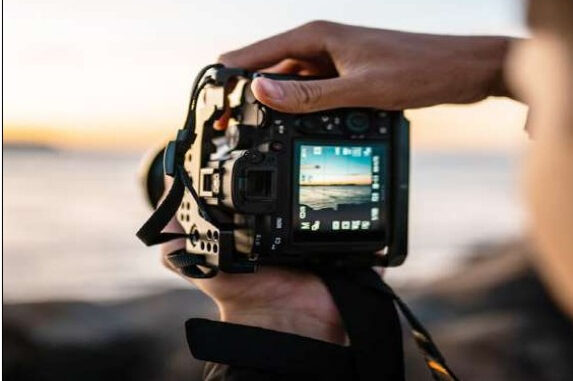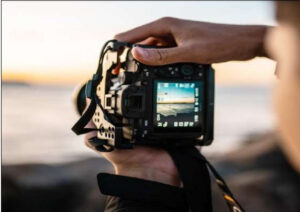
Katia Faroun | Features Editor
01/28/2021

Though it’s in the name, a photographer’s goal should not be a photo-op.
Merriam-Webster defines “behold” as to gaze upon, usually something of impressive beauty. Multiple religions place an emphasis on beholding the glory of nature. The Judeo Christian worldview encourages believers to see God’s presence in nature and to respect it as part of his creation. Aesthetic philosophers, such as Immanuel Kant, use nature as a basis to analyze judgments of beauty. In the metaphysical realm, nature is revered and respected as at least complex and at most holy.
But now, nature seems to play a different role.
I’ve been blessed with experiencing countless stunning landscapes — ones of majestic mountains, colorful skies at sunset or deep blue oceans splashing against a rocky coast. Almost as soon as my eyes land on the beauty, I whip out my camera and spend the next 10 minutes clicking open the shutter, shifting to get the perfect angle and lighting. At minute 11, I look out of the viewfinder and face an exhausted scene somehow not as striking as it is on my camera display — and walk away, already scheduling what time a post that evening would gather me the most Instagram likes.
Only later does the guilt set in — that I have the blessing of a camera on hand to forever document a fleeting piece of history, but instead of beholding the spectacle with my eyes, I see it through an expensive hunk of glass. I approached a piece of beauty, a combination of the forces of nature and science, and abused it by viewing it in angles, white balance and framing.
Yes, a photographer’s responsibility is to photograph compelling images — and time can limit our ability to enjoy the scene we’re photographing. But it’s also our responsibility to honor Earth’s greatness. Viewing a spectacle of nature as a canvas is just another way to exploit the natural world — a way to demean the grandeur of Earth by seeing it as something to consume, rather than to behold.
Today, beholding nature seems like a lost art. Technology has brought recent generations an abundance of convenience and joy — but as always with ease, there comes the temptation to take for granted exactly what this convenience is granting us access to.
It’s not always photographers that commit this crime. Tourists walk down streets taking selfies with La Sagrada Familia and spend lunch editing pictures of the beach they’re sitting on. Teenagers seek out scenic places and spend the entire time taking photos of each other, not stopping for one moment to admire the beauty they’re trampling.
The truth is, it’s easy for photographers to get caught up in our job. Our natural urge when seeing something beautiful or photo-worthy is to capture it — and to capture it well. But the techniques used to take a good photo are inherently distracting, and it’s inevitable for any photographer to not be truly in the moment when on the job.
However, with all things, there’s a balance. While it may not be possible for photographers to photograph nature unhindered by a lens, it is possible — and essential — for us to take a moment and simply be a human beholding a marvel of nature.
It’s humbling to recognize the grandeur of nature and our finiteness as human beings. Voyager 1’s 1990 image of Earth surrounded by the vastness of space reminded mankind just how small the pale blue dot we call home actually is. To be reminded of our seemingly insignificant mark on the history of the universe forces us to reckon with our pride.
For at our core, we are all human beings. Yes, we may wear a lab coat or a badge, and for a moment, resort to this temporary identity. But first and foremost, we are complex anatomical beings, consisting of various biological systems. We are the result of millions of years of evolution, and we most likely won’t be the last versions of our species.
Still, though the existence of the human race may only be a small finger nail shaving off the wingspan of time, there are things that have lasted much longer. There are mountains and ravines, valleys and oceans, volcanoes and waterfalls that rise and fall at Earth’s command. And as we enjoy our short time on this beautiful planet, we can humbly look on, reminded of our identities as its visitors.
As the book of Genesis reminds us, “For dust you are, and to dust you will return.” Who are we to exploit this wonder-filled planet by shoving DSLRs and smartphones in its face? We at least owe it the respect of beholding its non-man made beauty, and making that the image we walk away with.
Put the camera down, and enjoy the view.



